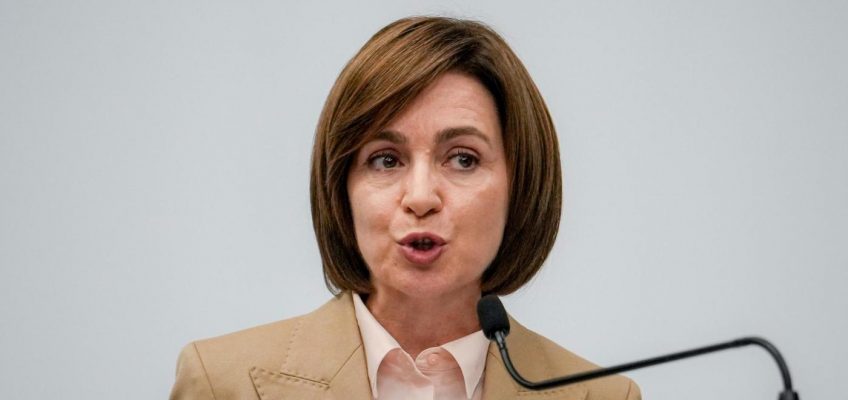By DEREK GATOPOULOS
ATHENS, Greece (AP) — With a pristine white exterior, the Greece tax authority’s new headquarters looks out of place on a clogged industrial artery outside Athens. A former shopping mall and ice rink, the building has been overhauled into an ultramodern digital center that has led the rescue of the nation’s ailing finance and tax sector.
Related Articles
Super typhoon blowing by northern Philippines and Taiwan forces evacuations and closures
Moldova detains 74 people over an alleged Russia-backed unrest plot around key election
Dozens arrested and hurt in clashes with police near Philippine presidential palace
UK charities cut ties to Sarah Ferguson after reported email describing Jeffrey Epstein as ‘friend’
Venezuelans in ‘reverse migration’ pushed to new perils in effort to return home
It is teeming with inspectors who chase down tax cheats with the help of drones, big data and live surveillance feeds from as far as Greece’s island ports and remote farming villages.
Analysts at the Independent Authority for Public Revenue monitor millions of transactions in real time and order stings on businesses flagged by algorithms for a high potential of illegal activity. The high tech was on full display during a recent visit as The Associated Press was granted rare access to the authority’s headquarters.
Greece’s tax system — once a byword for inefficiency — has been rewired by technology.
Now, the country that spent nearly a decade as Europe’s financial outcast, drowning in debt, has become one of its best budget performers, with bonds restored to investment grade by all major ratings agencies.
“We worked systematically over the years, with dedication,” Giorgos Pitsilis, governor of the revenue authority, told the AP. “We started from a situation of no data to a situation with big data.”
From crisis to credit upgrades
Greece was one of just six EU member states that recorded a budget surplus in 2024, after running deficits for decades. Momentum carried into this year, with government revenues shooting past targets through August.
Moody’s upgraded Greece’s bonds to investment grade in March, praising its large-scale push to digitize the tax system. Jason Graffam, senior vice president at ratings agency Morningstar DBRS, noted that Greece’s long-term borrowing costs now sit slightly above Spain’s — and below Italy’s and France’s.
“The Greece of today is indeed very different from a decade ago,” Graffam said. “There has clearly been durable change to the country’s economic model and its fiscal regime.”
During the crisis years, international creditors imposed punishing austerity measures in exchange for three massive bailout packages. Greece’s population felt the pain deeply — wages were slashed, companies shut down and the economy bled jobs.
Sustained pressure from lenders forced successive governments to modernize one of Europe’s weakest tax systems.
Out went paper files and fax machines. In came cashless, paperless systems powered by algorithms that scour card payments, tax filings, payroll data, customs declarations and bank records – and flag anomalies for inspectors to pursue.
‘Saturday Night Fever’
Repurposed smartphones carried by inspectors in the field stream video and audio back to headquarters. There are panic buttons to use when someone feels threatened.
Back at headquarters, screens map ongoing site inspections and drone surveillance feeds from multiple sites: from restaurants and ports to hidden grain silos and fruit delivery trucks — even live readings from ships’ fuel tanks.
Tax and customs officials described how the data translates into raids. They spoke to the AP on condition of anonymity because of the confidentiality of their work and citing reasons of personal safety.
During a recent nightclub sweep dubbed “Saturday Night Fever,” they matched individual table orders against receipts to uncover undeclared sales, mostly of alcoholic drinks.
“We knew the tables were full, but the receipts didn’t match,” one official said, adding that after inspectors showed up, the nightclub’s reported revenues doubled within days.
Fraud can be detected by cross-referencing mobile phone activity with reported sales as recorded by cash registers and card-payment terminals that by law must be connected to the tax authority.
“If we detect signals from 20 phones inside a store, but see almost no receipts, that’s a cue to dispatch a team immediately,” another inspector explained.
High cost-of-living persists
The reforms have salvaged Greece’s reputation abroad. At home, the windfall has funded 1.6 billion euros in tax cuts recently announced by the center-right government.
Still, opposition parties argue that more efficient tax collection does not offset policies that worsen inequality: The national sales tax rate was hiked during the crisis to 24% — higher than most EU countries.
It hasn’t been reduced since, while other austerity-era cuts remain in place and poverty is stubbornly high.
The powerful Greek Communist Party described recent budget figures as a “blood-stained surplus” that is eating further into the spending power of wage earners.
But the revenue is a sorely needed boost for the government, which is facing public anger over a corruption scandal and the cost-of-living crisis.
Tax compliance may also — slowly and grudgingly – build trust in public institutions, revenue agency officials say.
“It’s a powerful argument … being tax responsible is beneficial,” said Pitsilis, who has been governor since the tax agency became an independent authority in 2017. “We earn more, and that gives space for tax reform.”
Change is visible on the streets too. At a stall north of Athens, Makis Panaretos sells watermelons, tomatoes, cucumbers and oranges. About 70% of his sales are now electronic — all transactions are instantly referred to the tax authority.
“Customers use their cards, phones and watches to pay,” he said. “I don’t mind it, even though it slows things down when there’s a line.”
By November, all businesses will be required to accept IRIS, a Greek instant payment system similar to Venmo in the United States, eliminating bank and payment provider fees currently incurred by vendors like Panaretos.
Deeper AI integration
Greece’s progress is an example how a crisis can accelerate reforms, observers say.
“Greece has shown how digitalization and institutional independence can translate into real fiscal gains,” said Alexandros Kentikelenis, a political economy professor at Bocconi University in Milan.
Further integration of artificial intelligence into the tax authority’s systems through 2026 is likely to accelerate this process, according to tax officials.
“The push to modernize tax administration continues, which supports our expectation that tax revenue growth will remain robust over the medium term,” Moody’s wrote in its report accompanying its ratings upgrade in March.
Finance Minister Kyriakos Pierrakakis, a Harvard- and MIT-trained technocrat, says the shift is irreversible. A supporter of the digital euro, he has tied tax reform to broader plans to digitize the economy.
“Countries change when they change course,” he said at a news conference this month. “And that change means we won’t be left behind or ever return to the past.”




